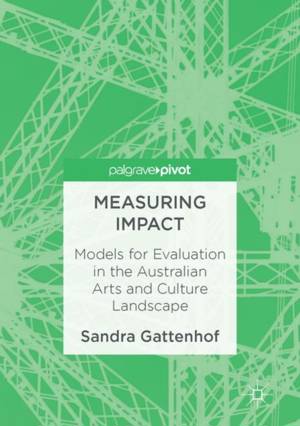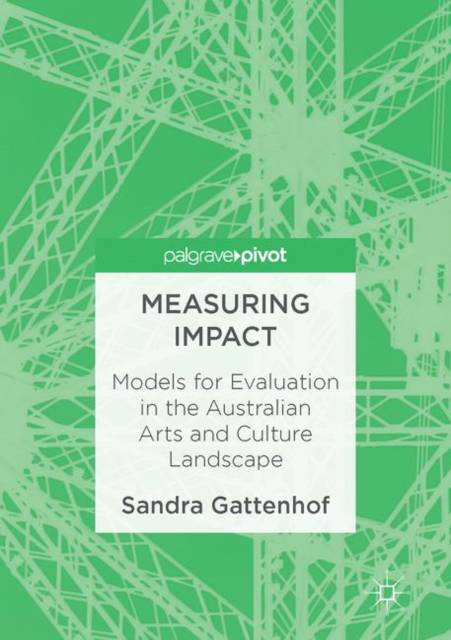
- Afhalen na 1 uur in een winkel met voorraad
- Gratis thuislevering in België vanaf € 30
- Ruim aanbod met 7 miljoen producten
- Afhalen na 1 uur in een winkel met voorraad
- Gratis thuislevering in België vanaf € 30
- Ruim aanbod met 7 miljoen producten
Zoeken
Measuring Impact
Models for Evaluation in the Australian Arts and Culture Landscape
Sandra Gattenhof
Hardcover | Engels
€ 83,95
+ 167 punten
Omschrijving
This book investigates the relationship developed between the researcher/evaluator and the commissioning arts and cultural producer in providing an opportunity to rethink the traditional process of reporting back on value and impact through the singular entity of funds acquittal. Using three commissioned evaluations as examples, the discussion outlines the two positions most often adopted by researchers/evaluators, external and distanced or embedded and collaborative, and will argue the merits and deficiencies of the two approaches. This text also investigates the role of the researcher/evaluator as a broker of stakeholder interests; how cultural organizations can partner in data gathering and develop a participatory approach to the research; what role the researcher/evaluator can have in the dissemination of evaluation findings and recommendations; and makes recommendations on which partnership type is more affective in a commissioned evaluation model for an arts and culture organization in the Australian landscape.
Specificaties
Betrokkenen
- Auteur(s):
- Uitgeverij:
Inhoud
- Aantal bladzijden:
- 78
- Taal:
- Engels
Eigenschappen
- Productcode (EAN):
- 9781137472861
- Verschijningsdatum:
- 31/10/2015
- Uitvoering:
- Hardcover
- Formaat:
- Genaaid
- Afmetingen:
- 158 mm x 218 mm
- Gewicht:
- 235 g

Alleen bij Standaard Boekhandel
+ 167 punten op je klantenkaart van Standaard Boekhandel
Beoordelingen
We publiceren alleen reviews die voldoen aan de voorwaarden voor reviews. Bekijk onze voorwaarden voor reviews.











